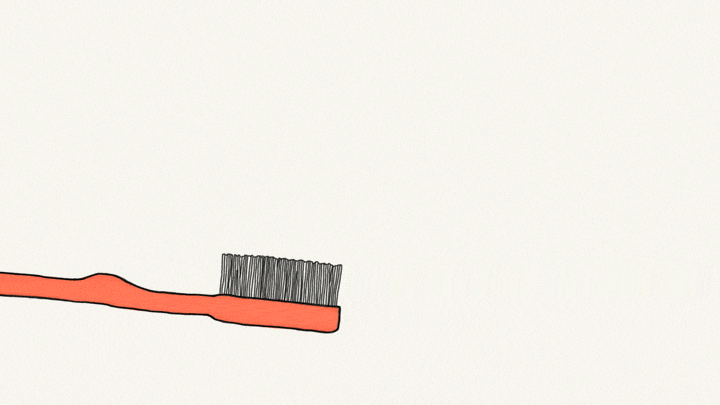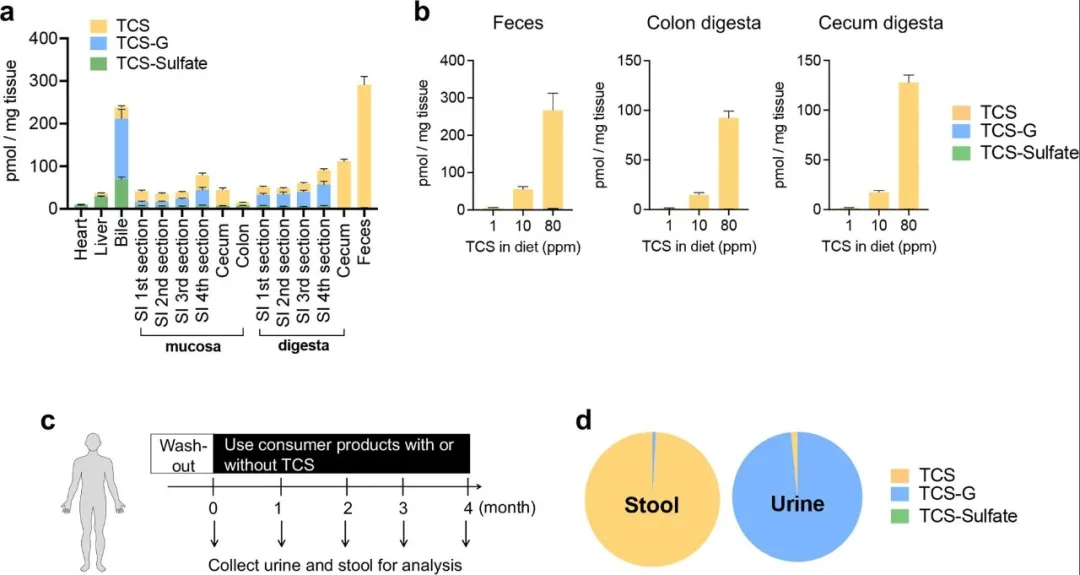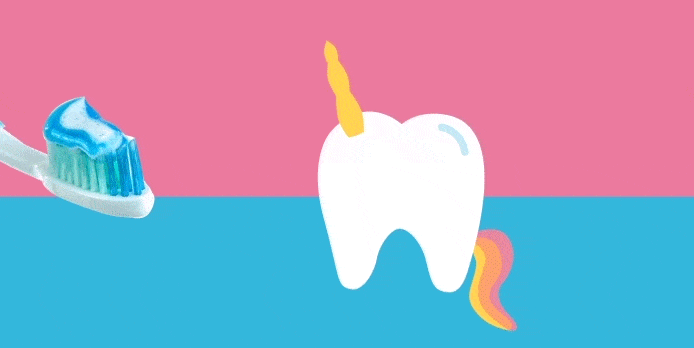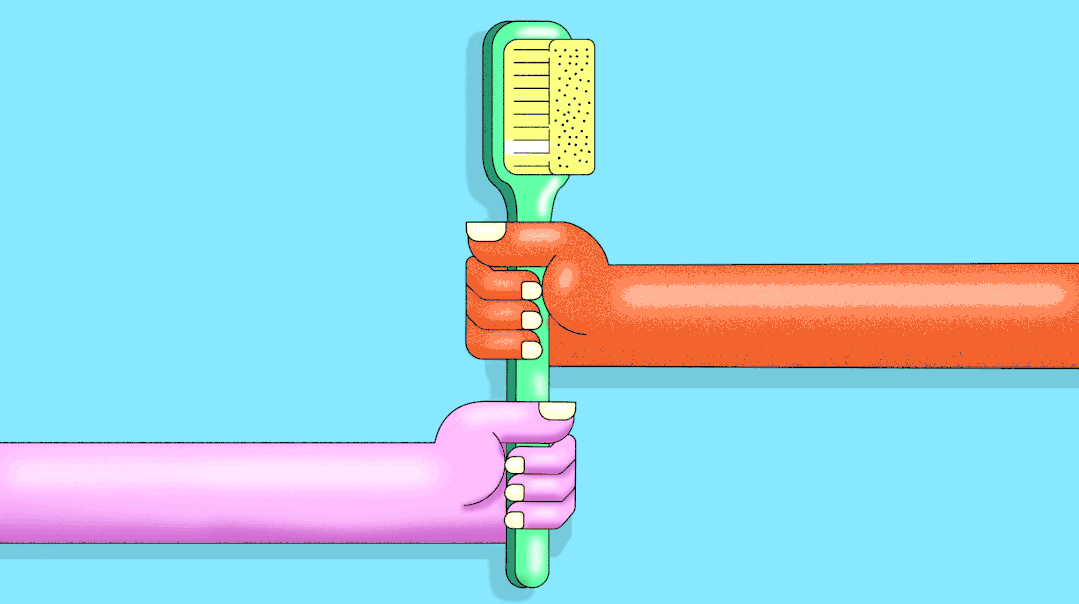3 kinds of "functional" toothpaste that doctors are afraid of! These ingredients may induce enteritis
Anti-moth, whitening, hemostasis, antibacterial, anti-allergic… Many people pay attention to the “function” written on the package when buying toothpaste and rarely look at the specific ingredients.
Recently, the international academic journal “Nature Communications” published a study: antibacterial agent triclosan (TCS) contained in some toothpaste may cause damage to the human intestine and induce enteritis.

This ingredient in toothpaste can induce enteritis
The research, carried out by Tsai Zongwei’s team at Hong Kong Baptist University in collaboration with a foreign team, explains how the antibacterial agent triclosan (TCS) triggers intestinal inflammation.

Studies have shown that after exposure to TCS, the intestinal toxicity of TCS is stimulated under the action of human gut microbial GUS enzymes, which in turn leads to the appearance of enteritis. By targeting the inhibition of gut microbial GUS enzymes, the harm of TCS to the human gut may be eliminated.
This study also further confirmed that TCS, a common ingredient in daily necessities, will cause certain harm to the human body, so you must pay more attention when choosing daily necessities.
Dentists are afraid of 3 toothpaste ingredients
According to the British “Daily Mail” report, many toothpaste ingredients are harmful to our health, Dr. Toby Talbert, a dental expert at the Royal College of Surgeons, reminded us to pay attention to these 3 ingredients:
Descaler: It can easily cause mouth ulcers
The oral mucosa is one of the most delicate tissues, and sodium lauryl sulfate is the most effective cleaning agent, which can cause irritation or damage the oral mucosa, leading to chronic oral ulcers.
People with frequent oral ulcers and those with ulcers are best not to use a toothpaste containing sodium lauryl sulfate.
Whitening agent: easy to damage gums
Bleaching agents such as hydrogen peroxide are added to many to toothpaste to whiten teeth. However, they can irritate soft tissues, damage the oral mucosa, and damage the gums.

The whiteness of teeth is related to enamel and dentin, which is difficult to change with toothpaste. Although bleaching agents can remove some stains on the surface of the teeth, they have little effect on the deep stains that are endogenous to the teeth.
Abrasives: can damage tooth enamel
Fine particles are added to many to toothpaste to remove stains from the surface of the teeth, however, some ointments are not abrasive enough and can wear away the enamel, which can lead to sensitive teeth over time.
It is recommended to purchase toothpaste containing aluminum hydroxide or calcium hydrogen phosphate with fine particles. These abrasives are relatively good and cause less damage to the tooth surface.
“Functional toothpaste” should not be used indiscriminately
Toothpaste is used as a brushing aid. Its basic function is to clean the oral cavity. Generally, commercially available toothpaste can be satisfied after strict testing. The effects of whitening, anti-cavity, desensitization, and hemostasis are all auxiliary and are not enough to directly affect oral health.
Whitening toothpaste:
Mainly, some special “friction particles” are added, which can remove the cigarette stains and tea stains deposited on the surface of the teeth, but do not affect deep endogenous stains such as tetracycline teeth and fluorosis teeth.
If the friction particles are large and hard, long-term use may also cause tooth wear.
There is also some whitening toothpaste with blue paste, which can only achieve the “visual effect” of temporary whitening through the blue foam.
Acid-proof toothpaste:
The principle is to form a protective film on the surface of the tooth, thereby enhancing the disease prevention ability of the periodontal tissue, but it should be stopped after symptoms improve, otherwise it will destroy the microbial ecological balance in the oral cavity.

Antibacterial toothpaste:
Some medicated toothpaste has bactericidal and bacteriostatic ingredients, which can help kill some bacteria in the oral cavity in a short time, but daily use is equivalent to taking a small number of antibiotics for a long time, which is not conducive to the microbalance of oral flora and is prone to drug resistance.
Anti-sensitive toothpaste:
Desensitizing ingredients such as fluoride and strontium chloride are added, which can only relieve mild dentin hypersensitivity to a certain extent.
Fresh breath toothpaste:
The freshness of the breath comes from brushing your teeth carefully, removing plaque and some harmful bacteria, not the fragrance of the toothpaste itself, so the “scent” of the toothpaste is not so important.
Choose a toothpaste that suits you
The use of toothpaste should vary from person to region and region, and should not be used blindly for a long time.

Mainly depends on the quality of the friction agent
Small particles should be selected to prevent damage to the tooth. The ones containing aluminum hydroxide and calcium hydrogen phosphate are better, followed by silica, and the particles of calcium carbonate are the largest.
Change toothpaste
Using a toothpaste for a long time, the bacteria in the mouth will develop resistance and learn to “resist” the effect of toothpaste to clean the mouth.
Sharing a toothpaste
Sharing a toothpaste can easily lead to cross-infection of many oral diseases. If someone in the family catches a cold or suffers from other oral diseases, some viruses and bacteria may remain in the crevices of the toothbrush after brushing.
The next time you brush your teeth, the toothpaste comes in contact with the toothbrush, potentially transferring the virus to the toothpaste and spreading it to others through the toothpaste.

Choose according to an oral condition
For example, children can choose children’s toothpaste; family members with caries can use fluoride toothpaste; people with periodontitis can choose Chinese herbal toothpaste or toothpaste with anti-inflammatory ingredients.
Some areas are not suitable for fluoride toothpaste
Fluoride toothpaste can reduce the chance of cavities, prevent the surface of the teeth from being dissolved, and also make the dissolved teeth stronger. However, in high fluoride areas such as Shanxi, Inner Mongolia, and Hebei, the drinking water contains fluoride, so it is not suitable to use fluoride toothpaste.
Reminder: toothpaste is not a substitute for medical treatment. If you have oral ulcers, black teeth, toothache, caries, bad breath, etc., you should go to the doctor in time.